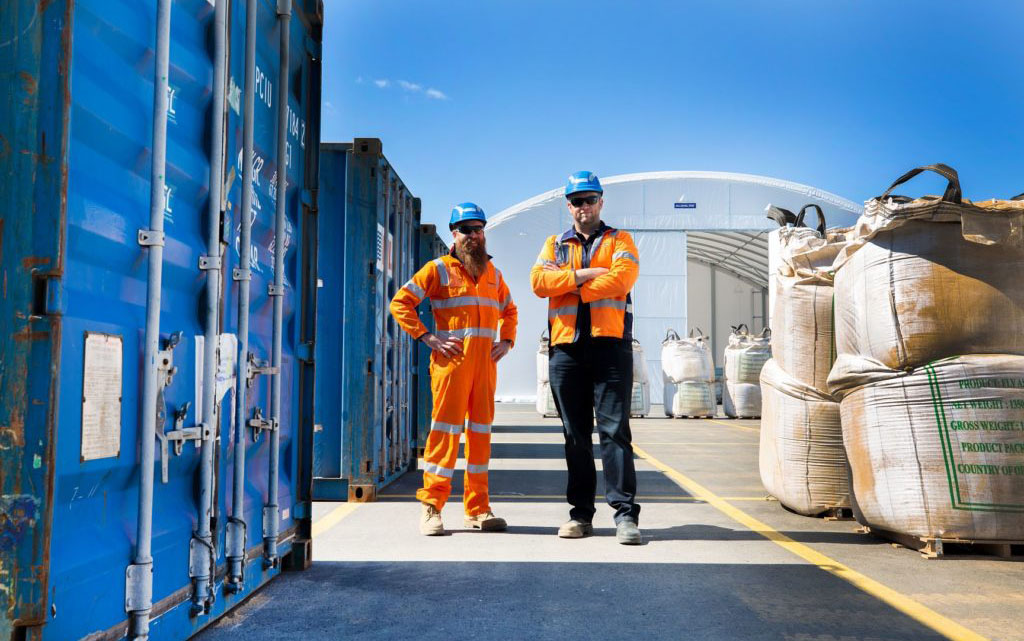Located adjacent to the Flinders Adelaide Container Terminal (FACT), the two FWD facilities are biosecurity accredited under the Biosecurity Act 2015 with an Import Approved Arrangement.
With these licences and subject to quarantine controls, FWD can provide quick turnaround times from vessel discharge, alleviating additional costs that can be associated with the first transport leg to an approved biosecurity facility and import terminal storage.
Michelle English, business development manager for FWD told DCN, “We provide a fast turnaround time from vessel discharge for containers requiring inspections with our comprehensive licencing”.
FWD also offers container pack/unpack, storage, distribution and additional supply chain services, all at the one location.
“We have a container interchange grid connected to FACT where we move containers from port arrival via straddles into the container grid. This is a zoned area which is allocated for the transfer of containers,” Ms English said. FWD also has a large clean hardstand area to accommodate a significant volume of containers and in excess of 25,000 square metres of undercover storage.
Ms English said FWD could manage treatment of up to 300 containers a week. Currently, around 10% of the containers being treated by FWD are then being warehoused at its facility. This provides the added benefit to freight owners who previously, had to transport containers and breakbulk cargo to other Approved Arrangements facilities outside the port area.
FWD’s one-stop-shop provides a benefit to owners of out-of-gauge (OOG) cargo, which is a growing market in the South Australian port. “Normally this movement would require a permit for OOG cargo to leave the port to travel to a treatment facility and include the second leg to its final destination,” Ms English said. “By using our treatment facility, they only need to apply for the one movement under the permit rather
than two.”
FWD offers all types of treatments including fumigation with methyl bromide or other products and heat treatment, as well as packing and unpacking services. It can also meet market demand for year round services or seasonal services to protect against hitchhiker pests such as the brown marmorated stink bug (BMSB). The season for BMSB will commence on 1 September. The management of export controls for prescribed goods is able to be provided within close proximity to the Flinders Empty Container Park and for final export through to FACT.
“We do have an export licence to manage prescribed goods and we’re starting to treat more exports,” Ms English said. “FWD has a licence for packing, inspection and treatment of fodder, hay, forestry products such as logs or woodchips, grains, seeds and nuts depending on the season.”
THE LICENCING PROCESS
Given the comprehensive application process to obtain biosecurity licencing, FWD sought independent advice to guide it through the process. “By engaging an independent consultant we were confident that we were in a good position from the get go,” Ms English said. “It took us approximately nine months to get the licencing completed and then from that point onwards we’ve worked on enhancing our licencing, and our services.
“We had one site ready before the other was completed, this meant our single licence needed to be extended to accommodate the new site. Although this took us longer to achieve than initially planned we now operate from two registered export premises.” Both of the company’s interchange grids have separate licences to accommodate both export and imports concurrently. “We also worked extremely hard on investing
in our people with the correct expertise, this is paramount when running this kind of operation properly, it’s very important to make sure your team are safe,” Ms English said.
Aside from the costs of licencing there are the ongoing requirements that come with running such a facility, including cleaning, pest control, weed control, records management and upkeep of equipment. “Despite these costs, FWD has managed to keep its biosecurity services market competitive, and as the market changes we may look at handling other export commodities, such as citrus but at this point we’re comfortable with the suite of services we’re offering,” Ms English said.
